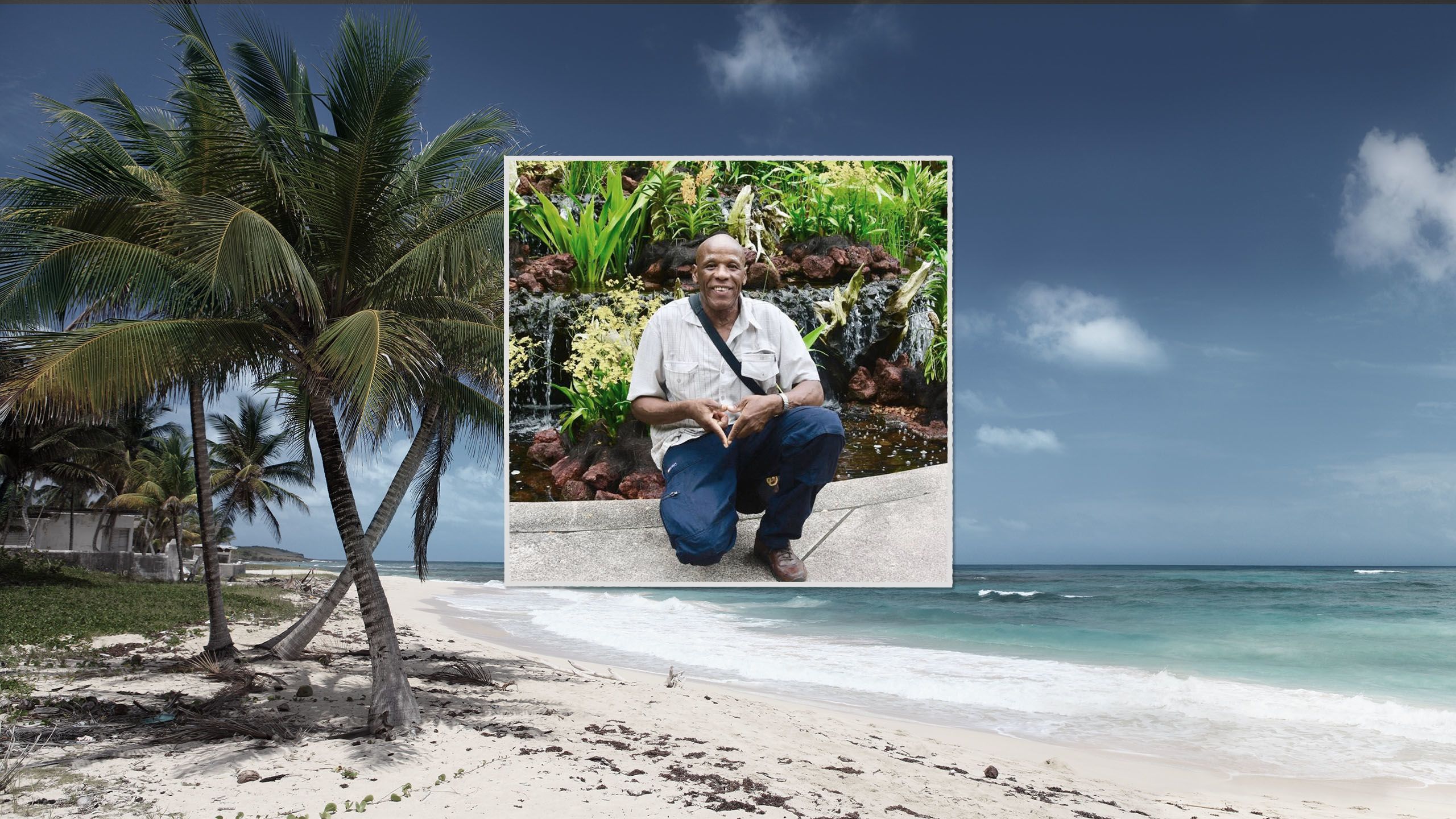
For its part, the Jamaican police has long been seen as underpaid, poorly trained, understaffed and lacking in resources. This is something that the UK Home Office highlighted in its 2018 country report.
“In addition, corruption and impunity for abuses committed by the police has led to mistrust amongst citizens,” it added.
But the report also stated that since 2009, the government has been taking steps to counter some of those problems, with a strategy of crime prevention and community safety.
The journey that began with my brother’s death has raised many questions about migration, identity and belonging.
Are returnees being seen as soft targets because they are coming home relatively wealthy after working for decades abroad. And what is that notion of “home”?
It’s something I discussed with Leroy Logan, who runs the Jamaica diaspora crime intervention and prevention taskforce in the UK.
Logan, a former Scotland Yard superintendent who spent some of his early years in Jamaica, is primarily focused on solutions to Jamaica’s wider crime issue. The government’s 2030 vision, he explains, is to make Jamaica more secure and more enjoyable.
But he did have advice for returnees.
He says much of the issue comes down to how people understand the idea of creating home in a place they left many decades ago.
If you still think of it as “home” after all this time, ask yourself if the same people you grew up with are still there, he advised.
Sometimes you go back to an area and it’s changed so much.
Don’t go back to a place you haven’t visited much and try to immerse yourself without understanding of the notion of the haves and the have-nots, he warned.
And don’t isolate yourself from the community by building a big house on top of the hill - contribute to it instead. Be sensitive - don’t start showing off your relative wealth. Integrate slowly and don’t go as far as to think you are suddenly part of the community after all these years, because you’re not. You will most likely be seen as a foreigner.
In terms of the people around you - choose them wisely, he said, particularly people you may ask to do work for you. To start employing people who aren’t recommended could put you at risk.
It all seemed like good, simple advice to me. But what is the government, itself, doing to communicate this?
During the investigation of my brother’s case in 2018, my sisters and I met Jamaican Police Commissioner Major General Antony Anderson.
We suggested at the time that the authorities should place more emphasis on the welfare, safety and wellbeing of returning residents.
Later that year, Anderson came to the UK to speak to the diaspora in London, Manchester, Bristol and Birmingham, and said the authorities were taking on board concerns about safety.
And I brought it up with subsequent meetings with the Jamaican High Commission in London - why if returnees were so important to the country, was safety not given equal weight to other advice, such as what to do with your finances and how to conduct a relocation.
"story" - Google News
May 03, 2020 at 06:31AM
https://ift.tt/2Yr7O3B
The story of my brother's murder - BBC News
"story" - Google News
https://ift.tt/2YrOfIK
https://ift.tt/2xwebYA
Bagikan Berita Ini














0 Response to "The story of my brother's murder - BBC News"
Post a Comment